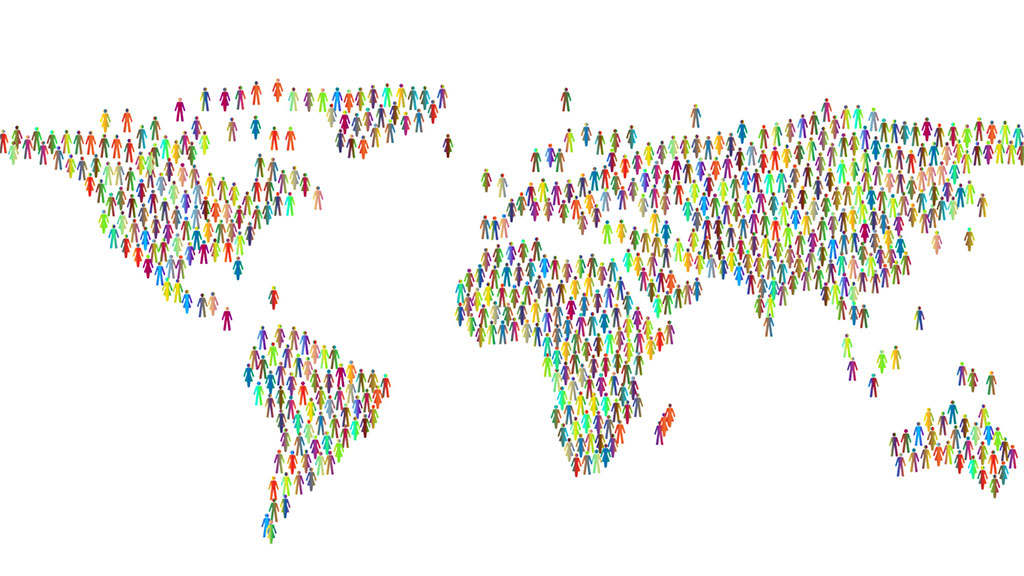Work & The Workplace
Exploring new ways of working and the critical role the office plays in the future of work.
LATEST REPORTS & ARTICLES

Research
Global Workplace Survey 2025
Gensler’s Global Workplace Survey 2025 reveals the importance of in-person work and insights on how workplaces can be better designed to support all forms of work for individuals and teams.

Blog
The New Workplace Experiences That People Crave
Employees want to move past the corporate workplace experience to more creative, natural, and residential environments.

Insight
Workplace Performance Index
Our Workplace Performance Index helps leaders create high-performing workplaces that support workers, unleash innovation, and drive business outcomes.

Blog
10 Workplace Trends for 2026: What’s In and What’s Out?
This is the year of bold moves, human-first thinking, and AI that doesn’t just answer questions but joins the team.

Research
Building for Centuries
The “600-Year Office” concept explores how modular and flexible building designs can adapt over centuries to shifting societal demands, while embedding sustainable strategies to minimize environmental impact and maximize long-term functionality.

Blog
Debunking 3 Myths About Generational Differences in the Workplace
As generational differences narrow, organizations should focus their workplace strategies across the entire talent spectrum.

Research
Neurodiversity in the Workplace
This report examines inclusive and layered design strategies to address the sensory needs of neurodivergent individuals, fostering equitable and responsive workplace environments that enhance sensory well-being for everyone.

Blog
Agency Is the New Workplace Amenity
By designing enough of the right spaces within the workplace, employers can create environments where employees have agency to choose the best space for their needs.

Research
Reimagining Suburban Office Buildings with the DRAFT Framework
This research explores the potential of suburban office buildings for adaptive reuse, presenting the DRAFT framework as a practical tool to transform underutilized assets into vibrant, mixed-use developments that align with modern community and economic needs.

Blog
The Future of Work Is Human: Designing for Culture and Experience
The challenge in front of us is to design places that empower creativity, build belonging, and support people and teams to do their best work — whatever that looks like.

Blog
Why Quality in Commercial Office Space Hinges on Workplace Experience
Demand is surging for premium office environments that deliver an effective workplace and a great work experience.

Research
U.S. Legal Workplace Survey 2025
We surveyed U.S. lawyers to understand how they are working across five work modes — and what spaces can support them to do their best work.

Research
UK Legal Workplace Survey 2025
We surveyed UK lawyers to understand how and where they work, and found that this varies greatly by role. This revealed opportunities to improve the legal workspace to foster greater visibility and collaboration.

Blog
How Law Firms in Mid-Tier Markets Are Leading Workplace Innovation
As law firms across the country reimagine the workplace, mid-tier markets are emerging as powerful leaders in this transformation.

Blog
A Surprising Reason to Feel Good About Returning to the Office
Why shared office space is a greener choice than working from home.

Blog
The Convergence of Tech and the Financial Workplace
The financial workplace is taking cues from the tech industry, shifting from one-size-fits-most to always-in-beta mode.

Research
Shared Futures: Corporate Real Estate Executives’ Strategies for 2025
This report combines various sources of data and findings to provide a forward-thinking perspective on CRE professionals’ expectations, priorities, and planned actions as the industry adapts to evolving workforce needs.

Blog
How Summer FOMO Is Shaping the Canadian Workplace
Our latest research offers some insights into why a desire for flexibility, variety, and seasonal adaptability is influencing the workplace in Canada.

Blog
The New Club Workplace: More Than an Amenity
The next generation of tenants wants an experience-driven, unconventional shared amenity space, prompting landlords to rethink their offerings.

Blog
How the Future of Work Is Influencing Workplace Design
While workplace design changes incrementally, the past few years radically transformed our expectations of an office and how we can design for what’s possible.

Blog
Repopulating the Workplace: Why Collaboration Space Is in Danger
Despite their value, collaboration spaces are often the first to go when companies are looking for ways to repopulate the workplace.

Blog
Is Belonging the New Currency for Workplace Design?
By prioritizing belonging, we can create more impactful and transformative spaces that mitigate loneliness, foster connection, and drive value for people and organizations.

Blog
Live Event Amenities: The Next Frontier for Creative Workplaces
Companies are investing in live event-ready amenity spaces to attract talent, fuel creative work, and create buzz in the workplace.

Blog
5 Ways Suburban Office Campuses Are Transforming Into Thriving Communities
Tomorrow’s office campuses demand much more than a park and a café to attract and retain talent.

Blog
The Future of Workplace Experience Is Here: How AI Is Transforming Spaces
The advanced integration of AI into physical environments has the potential to reimagine spaces as more efficient, connective, and inspiring.

Blog
Why Singapore’s Flexi-Time Regulations Are a Step Towards Building a More Sustainable Work Culture
New government regulations are shifting to meet the evolving needs of the country’s workforce.

Blog
Unlocking Value in Class A High-Rises: The Strategic Advantage of Spec Suites
In Class A commercial towers, spec suites are becoming a go-to strategy for converting vacancy into value.

Blog
A Fresh Take on the Corporate Workplace, With Inspiration From 19th Century London
With its historic character, Francis House provided the perfect platform to create a dynamic, engaging, and holistic employee experience for Edelman’s London office.

Blog
The Next Big Generation at Work May Not Be Who You Think
Historically, the fastest growing age group in the U.S. workforce has always been the upcoming generation. But not anymore.

Blog
When It Comes to Workplace Design, Beauty Drives Performance
Beauty plays a crucial role in driving workplace performance, going beyond mere aesthetics to shape overall functionality and impact the employee experience.

Blog
Workplace as a Service: A Thought Experiment in Office Evolution
The concept of Workplace as a Service challenges traditional notions about work environments. Will this new design perspective help the office remain relevant?

Blog
How Your Workplace Can Supercharge Performance
What workplaces can learn from the gym and the football pitch about creating environments that inspire workers to stretch, develop, and achieve.

Blog
A Field Guide to Authentic Amenities
To create authentic amenities that workers truly want, designers and companies should think outside the box.

Research
The Carbon Footprint of Work
We quantified the true carbon cost of office work in multiple scenarios and cities to understand the best ways to reduce total associated carbon emissions.

Blog
Redefining the Workplace for a New Era of Productivity and Engagement
This new era of work is not about obligation but about crafting a compelling experience that draws people in and encourages them to grow personally and professionally.

Blog
Designing Workplaces to Strengthen Connection and Combat Loneliness
The workplace plays a key role in fighting against the growing loneliness epidemic.

Blog
How to Create a Multigenerational Workplace
Here are six strategies organizations can use to cultivate environments where individuals of all ages feel valued, engaged, and empowered.

Blog
Creating Inclusive Spaces by Designing for Neurodiversity
Designing for neurodiversity is an essential evolution in our drive to craft inclusive environments that support productivity, well-being, and employee satisfaction.

Blog
6 Solutions for Designing a More Inclusive Workplace
In today’s changing work landscape, it’s critical to design environments where everyone feels safe, supported, and welcome.

Research
The Impact of Decentralized Finance on Next-Generation Workplace Experience
We explored how the development of financial technology and the emergence of decentralized finance have driven changes in the industry's workplace experience.

Blog
How Workplaces in Tokyo Are Embracing Flexible Work
Tokyo is embracing flexible work to support a diverse workforce and companies are taking careful steps to design workplaces that meet modern expectations.

Blog
Gensler’s Mexico City Office: A Model for the Future Workplace
A model of workplace transformation, Gensler’s new Mexico City office blends authentic Mexican culture with forward-thinking design principles.

Blog
Gensler’s New San Francisco Office: A Prototype for the Future of Work
Gensler’s new San Francisco office is a living lab for sustainability and innovation, designed to support new ways of working.

Blog
The Shift to Extremes: Rethinking Office Design
Modern offices are increasingly designed with extremes in mind, featuring specialized spaces for both hyper-focus and hyper-collaboration.

Research
Designing the 2030 Sustainable Office
We developed a framework that stakeholders can use to meet vital embodied and operational carbon targets and achieve sustainable offices by 2030.
FEATURED WORKPLACE PROJECTS

Francis House, London HQ
London, United Kingdom
Edelman, a global communications firm, collaborated with Gensler to transform its London office into a curated work destination as part of its global strategy.

IBM Flagship Office at One Madison Avenue
New York, New York
The new workplace has become an empowering platform for IBM’s formerly distributed teams because of its client-centric amenities and team-focused collaboration and meeting spaces.

Under Armour Global Headquarters
Baltimore, Maryland
Gensler collaborated with Under Armour to design a groundbreaking headquarters and destination for collaboration, athletic excellence, and community connection.
FEATURED WORKPLACE SERVICES

Workplace Performance Index
Our Workplace Performance Index helps leaders create high-performing workplaces that support workers, unleash innovation, and drive business outcomes.

The Culture of Innovation Diagnostic
Gensler’s Culture Strategy team developed a diagnostic framework that uncovers the key factors to activate an intentional culture of innovation.

Strategy
We enable transformation of organizations, cultures, and environments through our experience strategy, workplace consulting, and change management services.
WORKPLACE NEWS
-
Newsweek
2025Newsweek featured Gensler’s 2025 Global Workplace Survey and insights from Global Director of Workplace Research Janet Pogue McLaurin in a piece on evolving RTO trends, highlighting growing demand for flexibility, autonomy, and workplace experiences that best support people and performance. -
AllWork
2025AllWork published insights by Gensler Global Co-Chair Diane Hoskins on why shared office space is a greener choice than working from home. The article cites studies by the Gensler Research Institute, in collaboration with MIT, on the carbon footprint of where we work and benefits of shared systems. -
Building Construction+Design
2025Building Design+Construction covered findings from Gensler’s 2025 Global Workplace Survey, highlighting how choice and spatial variety directly influence employee performance and satisfaction.
Interested in working with us?